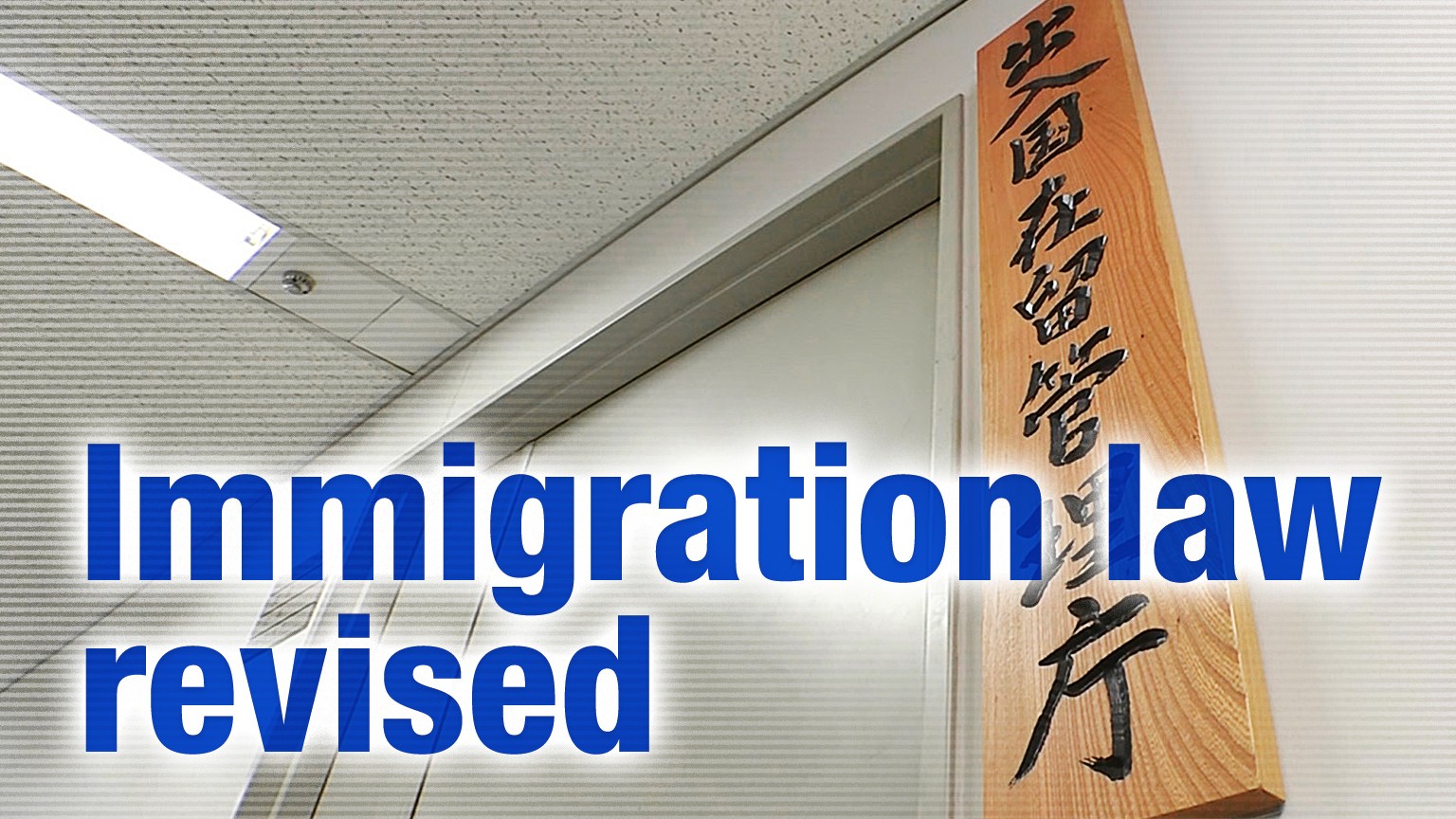Key changes
With the implementation of the revised law, the rules regarding the detention and deportation of foreigners whom the government deems to be staying in Japan illegally have changed.
The law allows the state to order foreign nationals to leave Japan if they overstay their visas, work illegally or are convicted of serious crimes.
But under the law before the revision, deportation procedures for people applying for refugee status are suspended while their claims are being screened.
The Immigration Services Agency says some foreign nationals repeatedly filed applications to avoid deportation.
It says such abuse of the system has led to prolonged screening procedures and a failure to deport those who have to leave Japan under the law.
The revised law stipulates that foreign nationals who apply for asylum status three or more times will now be subject to deportation unless they can provide reasonable grounds to be recognized as refugees.
The new regulation also enables authorities to deport those who have been given a prison term of three years or longer in Japan, without suspension, as well as those who are recognized as terrorists, even if they are in process of applying for refugee status.
Another key point is a review of the rules for detention at immigration facilities.
To date, those given a deportation notice, those under examination for deportation and those who refused to depart the country after being ordered to do so were detained in principle at immigration facilities.
It is said the situation led to long-term detentions, resulting in health problems for detainees.
The Immigration Services Agency also said the system of provisional release for health and other reasons did not have sufficient measures to prevent people from fleeing, as their personal guarantors were not legally obliged to take such action.
The revised law allows those facing deportation to live outside detention facilities if approved, under the oversight of authorized supervisors. The supervisors are required to assess how those under their supervision are living in Japan.
The supervisors are obliged to report to immigration authorities when they discover illegal work activity or believe that the possibility of fleeing exists, or when they are asked by the authorities for information. The supervisors face penalties if they fail to make such reports.
Those foreign nationals are also obliged to make reports on their lives to immigration authorities, who every three months will review whether there is a need to detain them again.
The system of provisional release from detention facilities will be limited to cases of health issues or others.
Possible persecution
The Japan Association for Refugees says the changes may result in some asylum seekers being returned to countries where they face persecution.
The non-profit also says that under the old rules, some people were granted visas or permission to stay in Japan on humanitarian grounds, even after their applications were rejected multiple times.
Others are skeptical that Japanese nationals will be willing to participate in the new plan that allows people facing deportation to remain under the supervision of a guarantor, rather than in detention. They said the responsibility of being a guarantor may be too heavy.
Last chance
The Immigration Services Agency has, for its part, said applicants who have been rejected multiple times have been sufficiently examined, including by outside experts.
Asylum seekers may still suspend deportation by providing documents showing why they should be granted refugee status, even after their third application has failed.
The agency said it will also work to improve transparency. It said the government is trying to disclose guidelines for judging refugee status on its website and to provide the applicants with detailed descriptions of why their refugee status was not recognized.
The agency said it wants to work to protect refugees as quickly and stably as possible.
Transparency needed
Kinoshita Yoichi, an immigration administration expert and former agency employee, said he understands the revisions. But he also emphasized that some people who have applied more than three times were eventually granted asylum under the old rules.
He went on to say that any inspections that could lead to an applicant's deportation must be transparent. He said it is important to hold thorough discussions on what kind of screening should be done, including the involvement of a third-party organization.
